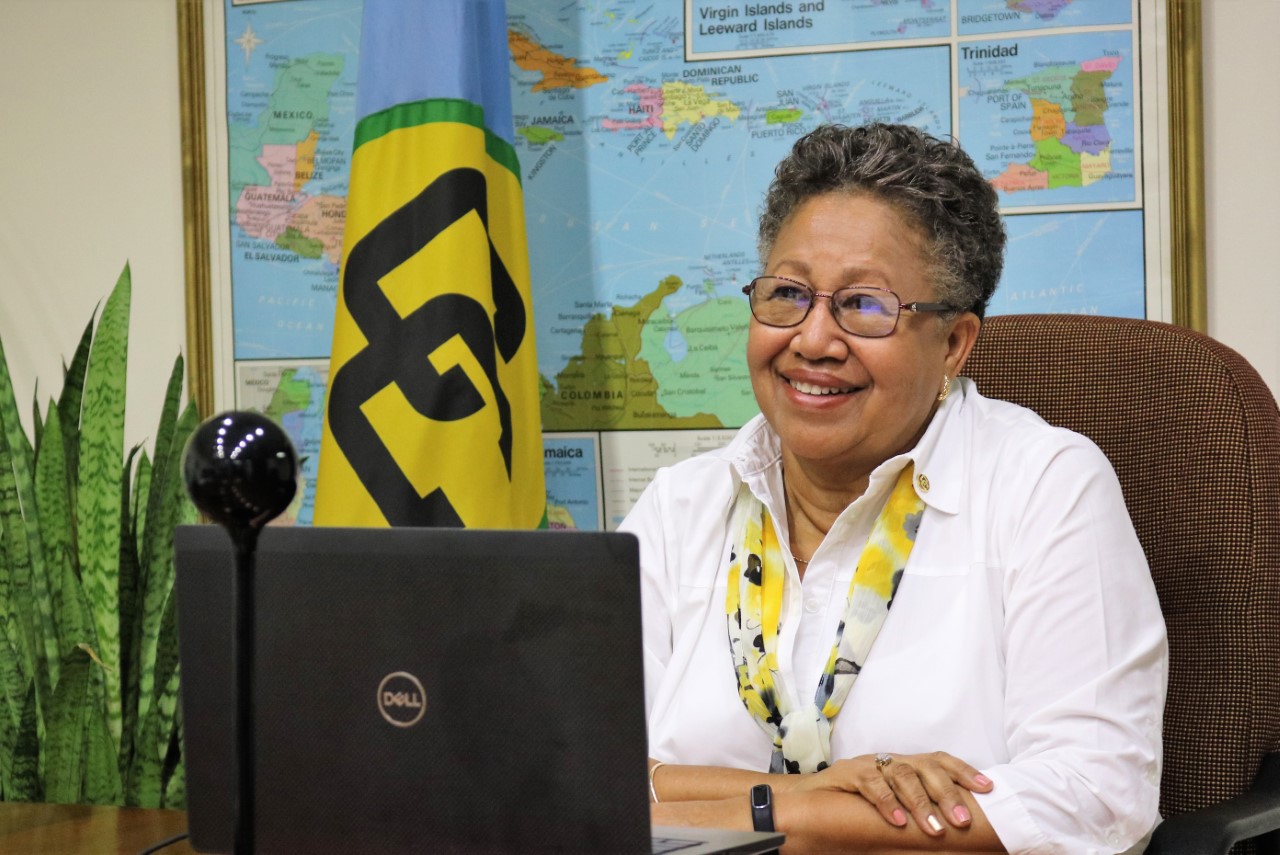Environment
Sweden’s Bear Hunt Sparks Outrage As 150 Brown Bears Killed In Two Days

Sweden’s annual bear hunt has sparked controversy after more than 150 brown bears were killed in the opening days, with conservationists decrying the “pure slaughter”. The government issued 486 licenses to shoot bears, equivalent to 20% of the remaining population, following a record-breaking cull of 722 bears last year.
By Thursday afternoon, the second day of the hunt, 152 bears had already been shot, according to Sweden’s Environmental Protection Agency. The hunt has become a focus of growing controversy, with police accompanying hunters for the first time amid concerns of local protests.
Magnus Orrebrant, chair of the Swedish Carnivore Association, a pro-wildlife advocacy group, said: “Modern hunting methods make it extremely easy to kill a bear – one could liken it to pure slaughter.”
Police officers have been patrolling the forests on foot and with drones to ensure the “hunters’ peaceful progress” amid concerns that the increased licenses could provoke protests. “We have deemed it necessary to ensure that there is no interference with the hunters doing their job during this year’s bear hunt,” said Joacim Lundqvist, a police officer and wildlife coordinator for the north of Sweden.
Bears were hunted almost to extinction in Sweden a century ago, but numbers recovered to a peak of 3,300 in 2008. In the years since, the culls have cut bear numbers by 40% to about 2,400. If they continue at a similar rate, next year’s cull will bring numbers close to the minimum 1,400 bears considered necessary to maintain a viable population by the Swedish government.
Read also : Global Leaders Converge in Brazil to Tackle Climate Change, Sustainable Development
Over the past two years, Sweden has culled hundreds of wolves, lynxes, and bears, with last year’s hunts breaking modern records for the number of animals killed. In 2023, the country held the largest wolf hunt in modern times, aiming to cull 75 of an endangered population of just 460 wolves.
Ecologists are concerned that if they continue, the hunts may have repercussions across the region. Earlier this month, Norwegian environmental groups appealed to Swedish authorities in some border regions to turn down the licenses to kill the bears, arguing that they threatened the brown bear population in both countries. Their appeal was denied.
Truls Gulowsen, head of the Norwegian Nature Conservation Organisation, said they were “very concerned with this culling”. He said: “It’s a significant and quite dramatic reduction of the Scandinavian brown bear population. Now that Sweden is seriously decreasing its stock, it will impact the survivability of the entire Scandinavian population.”
Jonas Kindberg, of the Swedish University of Agricultural Sciences, and the lead scientist for the Scandinavian Bear Project, said: “If you want the population to remain stable at around the 2,400 animals as we estimate today, you can only shoot about 250 bears annually.”
Brown bears are a “strictly protected species” in Europe, and conservationists argue that the high hunting quotas could breach the EU habitat directive, which prohibits “deliberate hunting or killing of strictly protected species”. Under EU rules, this prohibition can only be lifted as a “last resort” to protect public safety, crops, or natural flora and fauna.
Magnus Rydholm, communications director for the Swedish Association for Hunting and Wildlife Management, said the brown bear was not typically dangerous to people. “No, it’s not,” he said. “It is mostly interested in blueberries. Of course, if it’s provoked it can become dangerous.”
As the hunt continues, concerns mount over the future of Sweden’s brown bear population and the potential consequences of the government’s actions
Environment
Hurricane Melissa: CARICOM Reaffirms Support for Jamaica, Haiti

Hurricane Melissa: CARICOM Reaffirms Support for Jamaica, Haiti
CARICOM Secretary-General, Dr Carla Barnett, has restated the Community’s solidarity with Jamaica and Haiti following the devastation caused by Hurricane Melissa, saying the disaster reinforces the urgent need to strengthen regional resilience against climate change.
Dr Barnett made the remarks at the opening of the 61st Regular Meeting of the Council for Trade and Economic Development (COTED), where she also highlighted the importance of the CARICOM Single Market and Economy (CSME) in supporting sustainable growth amid recurring climate shocks.
She expressed sympathy to the Governments and people of Jamaica and Haiti over the loss of lives and widespread damage caused by the storm.
She commended the response of regional bodies, including the Caribbean Disaster Emergency Management Agency (CDEMA), the Caribbean Public Health Agency (CARPHA), private sector groups and other regional partners.
The Secretary-General also referenced the recent visit of four CARICOM Heads of Government to Jamaica as a strong demonstration of regional unity and a signal of continued support.
“The experience leaves us in no doubt about the urgency of addressing the existential threats posed by climate change and the need to redouble our efforts to build resilience and foster sustainable development across our Region,” she said.
“Strengthening our trade and economic performance is a critical part of this, and COTED must continue to play its important role in this regard.”
Chairing the meeting, Belize’s Minister of State for Foreign Trade, Hon. Marconi Leal, noted that the Region was dealing with complex global and domestic challenges that continue to test the resilience of individual Member States.
He said Hurricane Melissa further exposed the Caribbean’s vulnerability to climate threats, stressing the need for deeper cooperation and coordinated recovery efforts.
Minister Leal said COTED would deliberate on critical issues, including advancing the free movement of CARICOM nationals, implementing the Community’s Industrial Policy and Strategy 2035, and support measures under Article 164 of the Revised Treaty of Chaguaramas.
The 61st Regular Meeting of COTED reaffirmed CARICOM’s commitment to strengthening regional trade, deepening economic integration and advancing sustainable development across the Community.
Environment
Spain Introduces Disaster Preparedness Lessons for Children

Spain Introduces Disaster Preparedness Lessons for Children
In a bold move to strengthen climate resilience, Spain has announced compulsory disaster preparedness lessons for schoolchildren across the country.
The initiative, unveiled on Thursday by the Spanish government, is designed to equip children with knowledge and survival skills in the face of floods, wildfires, earthquakes and volcanic eruptions, which experts say are becoming more frequent due to the worsening climate emergency.
The development comes after a summer of devastating forest fires claimed four lives, and less than a year after catastrophic floods left more than 220 people dead in eastern Spain.
According to the Ministry of Education, the new programme will cover not only natural disasters but also industrial, nuclear and chemical accidents, as well as emergencies involving the transportation of hazardous materials.
Over 8 million pupils in 25,000 schools will benefit from the compulsory training, which will begin this academic year.
Lessons will be delivered through videos, infographics and other teaching tools, with children in infant and primary schools receiving a minimum of two hours, while older students will undergo at least four hours.
“Infant school children aged three, four and five will learn to recognise alarms and spot early signs of danger, as well as basic safety principles,” the ministry said in a statement.
“Older children will be taught how to seek higher ground during floods and to take cover under desks during earthquakes.”
The ministry added that students would also be educated on identifying disinformation during emergencies, a growing concern in the digital age.
Speaking at the launch in Cuenca, Prime Minister Pedro Sánchez stressed the importance of preparing young people to face disasters worsened by climate change.
“If we don’t want to bequeath our children a Spain that’s grey from fire and flames, or a Spain that’s brown from floods, then we need a Spain that’s greener,” Sánchez declared on September 1, calling for a “great state pact” to tackle the climate crisis.
The lessons form part of a 10-point government plan to safeguard Spain, which experts say lies on the frontline of Europe’s climate challenges.
Environment
Pacific Island Nations Lead the Charge in Climate Action

Despite contributing a mere 0.03% to global greenhouse gas emissions, Pacific Small Island Developing States (PSIDS) are setting a powerful example in climate leadership.
A new report by the UN Climate Change Regional Collaboration Centre for Asia and the Pacific reveals that these nations are making significant strides in meeting the goals of the Paris Agreement.
The 14 PSIDS have demonstrated their commitment to reducing emissions and promoting sustainable development.
All 14 countries submitted their first round of Nationally Determined Contributions (NDCs) by the end of 2015, with 11 submitting updated or enhanced versions since then.
These NDCs outline ambitious targets in renewable energy, sustainable transport, and nature-based solutions.
Six PSIDS aim for 100% renewable energy, showcasing a commitment to reducing dependence on fossil fuels.
Countries are also exploring eco-friendly transportation options to minimize emissions and initiatives focus on preserving and restoring natural ecosystems to mitigate the effects of climate change.
The Pacific Island nations are reframing climate ambition as a regional issue, intersecting with identity, sovereignty, and development.
The 2050 Strategy for the Blue Pacific Continent highlights the importance of ocean-based solutions and regional collaboration.
Several countries in the region are taking bold steps to address climate change.
Fiji was the first country to ratify the Paris Agreement and preside over a UN Climate Conference (COP 23).
The Marshall Islands was an early submitter of Intended Nationally Determined Contributions (INDC) and has integrated youth participation and Indigenous knowledge into its national climate agenda.
Papua New Guinea was the first to formally submit an NDC, with a target of 100% renewable energy by 2030.
Vanuatu is committed to rapidly phasing out fossil fuels and transitioning to a circular economy, with NDC targets conditional on scaled-up international support.
As the global community prepares for the third round of NDCs, the Pacific Island nations offer a clear message: the next generation of NDCs must aim higher and go further, turning ambition into action and action into survival.
With climate change posing existential threats to these nations, their commitment to limiting warming to 1.5°C is not just about reducing emissions – it’s a matter of survival.
-

 Extra4 days ago
Extra4 days agoUS Veteran, Walter Obi Urges Compassionate Leadership at Valentine’s Event in US
-

 Diaspora3 days ago
Diaspora3 days agoZenith Bank to Host Diaspora Engagement, Banking Services for Nigerians in Texas
-

 Analysis4 days ago
Analysis4 days agoIs Nasir El-Rufai on the Peril? By Alabidun Shuaib AbdulRahman
-

 News4 days ago
News4 days agoNigerian Govt Raises Alarm Over Illegal Recruitment of Its Citizens into Foreign Wars
-

 Business4 days ago
Business4 days agoA Home Worth Coming Back To: The Signature Residence by Mshel Homes
-

 News4 days ago
News4 days agoIran Claims Breakthrough on ‘Guiding Principles’ in Nuclear Talks with US










